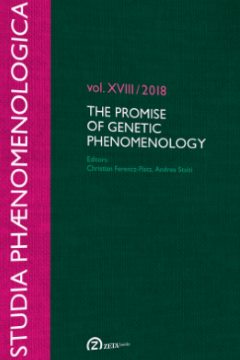Husserls Phänomenologie biologischer Generativität
pp. n/a
Abstract
The present article intends to show that genetic phenomenology, as conceived by Edmund Husserl, implies an essential biological dimension. In his later research manuscripts, from the 1920’s and 1930’s, Husserl not only reflects on the conceivability of forms of intropathy (Einfühlung) regarding animal and plant bodies, based on dismantling reduction (Abbaureduktion), but also on the embeddedness of the human monad in ontogenetic and phylogenetic generative becoming. On that basis, the article aims to locate the place of bio-generative phenomena within the field of genetic analysis in the theories of monadic gradualism and of somatic anomalism. However, by taking into consideration that new attempts to approach biological generativity from a Husserlian perspective (A. Steinbock, R. Affifi) are only partly successful, the article ends with a delimitation of certain elements that require further elaboration, namely the investigation into the biological implications of monadology, the determination of forms of corporeal anomality, and the vindication of the notion of essential limit-phenomena.
Publication details
Published in:
Ferencz-Flatz Christian, Staiti Andrea (2018) The promise of genetic phenomenology. Studia Phaenomenologica 18.
Full citation:
Gaitsch Peter (2018) „Husserls Phänomenologie biologischer Generativität“. Studia Phaenomenologica 18, n/a.


